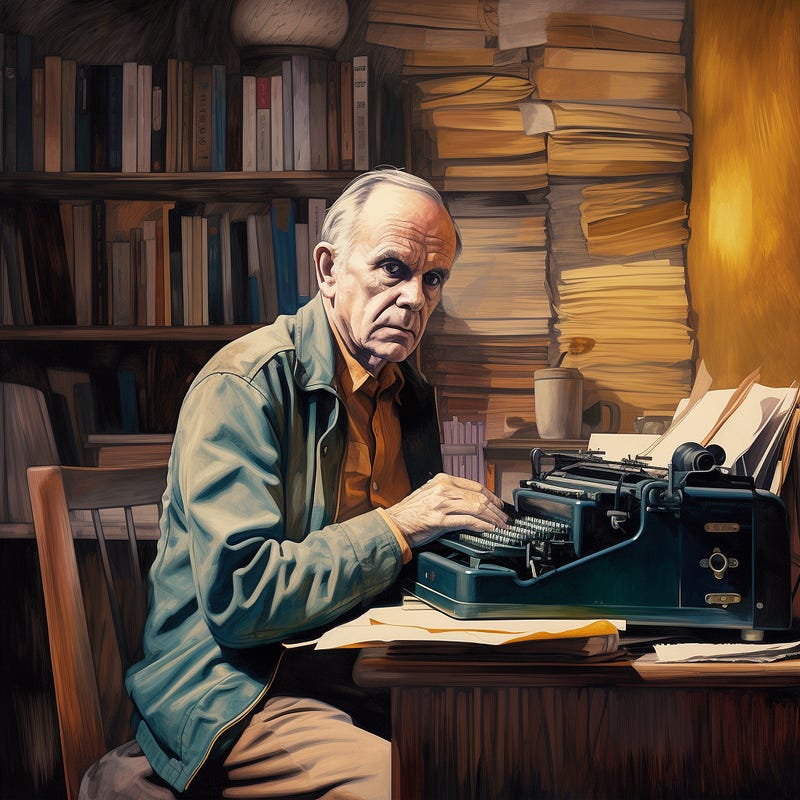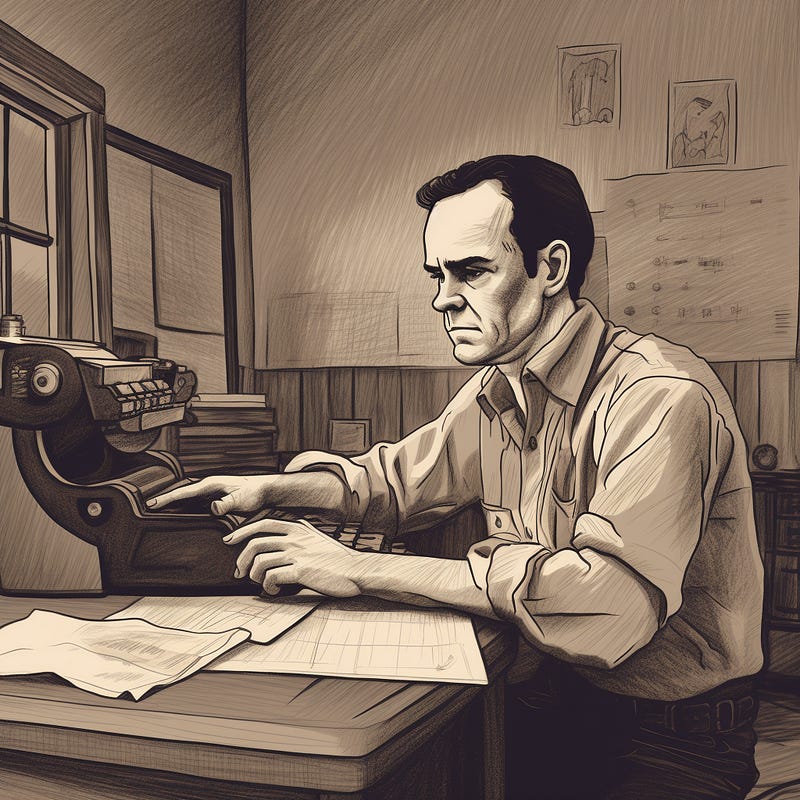4 Writing Tips from Cormac McCarthy
Cormac McCarthy will go down as one of the greatest American writers. He rarely did interviews and the ones he did he often played down his importance. He didn’t like talking about writing publicly an

Life v Death
“If it doesn’t concern life and death, it’s not interesting.”
Bit of an understatement here but wow, there’s a whole ton of death in McCarthy’s books but at the same time every story must echo human life at some level.
The fact that we’re all going to both have to deal with death and loss over our lifetimes and, let’s face facts here, we’re also all going to be popping our clogs at some stage too.
There simply has to be jeopardy when you’re writing and there’s no greater jeopardy than losing your life. If a main character is solely concerned with staying alive then the reader is going to be all-in on wanting them to survive. If it’s concerning the survival of loved ones, for example in The Road, and the bonds between the characters then it’s going to be even more interesting.

2. How to Write ‘Bad’ Characters
“I want, even for the worst of the characters, grace under pressure, some slinking nobility”.
Think of The Judge from the aforementioned Blood Meridian or Anton Chigurh from No Country for Old Men and read that quote again. These are evil, villainous characters but for as malevolent and malicious as these men are in his books, they certainly have a ‘slinking nobility’ about them as they carry out their various misdeeds.
Villains are incredibly important in McCarthy’s books, they are the characters that leave us with lasting impressions but there’s something in them that makes you, unwantingly, both connect and identify with them. You find yourself getting to know their desires and their worldview and, while disgusted by it, we know why they do what they do.
McCarthy was careful not to turn his bad guys into caricatures of bad guys, there’s shades of grey with them all. He wanted to show the world that all of us have the capacity to carry out evil and for it to become a way of life. He made them identifiable.
In giving them ‘grace under pressure’ he was able to play with this however. In making his baddies calm and collected when carrying out their various horrible misdeeds he made them seem more powerful, more villainous. In doing so he made them more fearsome, which challenges the reader to still be able to identify with them as we continue reading.
So, make your villains not purely evil but deeply, deeply flawed people who are extremely good at being bad.

3. Letting Go and Not Forcing the Creative Process
“The best things just sort of come out of the blue. It’s a subconscious process. You don’t really know what you’re doing more of the time.”
The most hated question an author or songwriter gets is ‘where do your ideas come from?’ Nobody can really answer that. People can try but not a shred of proof will ever be found in their answers. We just don’t know of a physical place where ideas come from.
But a mental place? Well, that’s another kettle of kippers isn’t it? We know a good bit about the subconscious now but we’re really just at the tip of a rather large iceberg. We’ve all had the experience of having some problem doing our head in and getting nowhere with it and then while taking a walk or having a shower, suddenly boom. The solution just comes out of the blue.
It’s important then to take breaks from writing, to give your mind a rest so it can catch up and find solutions. The way I see it, the part of my mind that comes up with ideas doesn’t work nearly as quickly as the speed I can type at. Slow down and let things come.
4. Read, Read, Read and Read some more
“The ugly fact is books are made out of books. The novel depends for its life on the novels that have been written.”
The books we read and the characters we get to know and love, or hate, while reading we simply cannot help but soak up. Ask yourself this, can you choose not to be influenced by something you’ve read? Even if it’s good or really, really terrible you’re going to have some kind of reaction to everything you read, even if it’s just clicking off an article and going back to mindlessly scrolling social media.
McCarthy was pretty shameless when it came to lifting huge parts of other books for his novels but really, there’s no shame in that at all. Led Zeppelin and the Rolling Stone were just as shameless when they were starting out in rock music.
The books we read and the ones we love in particular will have a profound effect on what we like to write. It is important then to pay close attention to what we’re reading and to choose what we read wisely.
Life is far, far too short to waste time on reading bad books, so take the time to really research a book before buying it and also, read the classics, they’re classics for a reason.
People worry far too much about being original and there comes a time when you’re going to have to face the fact that being original is meaningless.
According to the late John Gardner “there are only two plots in all of literature: you go on a journey, or the stranger comes to town.” You do not have to be original, you are totally free to use other books, or films, or TV shows, or conversations you’d had with your Dad in your writing.
Your only job as a writer is to write well.
Hi, I’m Paddy. Thanks for reading my article. I’m a counselor, coach and meditation teacher. If you’d like to read my latest articles on Medium you can subscribe here. If you’d like to contact me regarding a counseling session or about writing, you can contact me here. My different social media channels are here.



